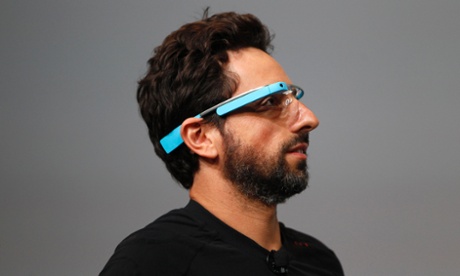
Google will open up its Glass “Explorer Program” for one day only to allow US residents to buy the smartglasses before general release.
A limited, but unspecified, number of the Google smartglasses will cost $1,500 plus sales tax and be available for 24 hours via online ordering on a first-come, first-served basis from 6am PDT (2pm UK time) for adults who live in the US.
But Google is giving no indication of when, or whether, availability will be extended to other countries other than stating that it wants as many different demographics to test and give input into the development of Glass as is possible.
Special research cases
Google hasn't made Glass generally available outside the US, though a number of people have bought it there and then used it in other parts of the world while travelling. A few specific applications have been granted outside the US, including Newcastle University's research into Parkinson's disease, which has recently been given access to Glass as part of research funding.
The Guardian understands that one of the primary reasons Glass is not available outside the US is due to the requirements of localisation for language, accent and regional differences in units – although Google's voice search is currently available in localised versions in many countries outside the US including the UK.
There may be privacy and legal concerns to expanding Google Glass's footprint outside the US. Even in America, Google faces preemptive attempts to block the use of Glass while driving, with a number of states seeking to pass laws banning it - which Google is lobbying against.
European privacy legislation might be more severe over the use of Glass to film or photograph people without their specific consent in countries such as Germany. The company didn't respond to a request to explain why sales have been restricted to the US.
“Every day we get requests from those of you who haven’t found a way into the program yet, and we want your feedback too,” the Google Glass team said in a Google Plus post.
The latest edition of Glass will come with spectacle-style frames, rather than the Star Trek-like single band across the face. Google Glass is a voice-controlled set of smartglasses that uses a prism placed above the right eye to create a virtual display just out of eyeline.
Glass is capable of displaying contextual information based on the wearer's location, time of day and links to Google's services through an Android smartphone. It is also equipped with a camera that will record video and capture photos on command.
No friends needed
The move marks the first time Google will make Glass available for general sale, even if in limited numbers. Previous purchasers had to have been referred by friends with Glass, participated in smaller, group-based campaigns including university groups, or applied for a set of the smartglasses as a developer.
Google recently announced that Italian Ray-Ban and Oakley sunglass manufacturer Luxottica was partnering with the search giant to design and create new frame styles for Glass to make them look more stylish.
Glass “Explorers” have come under fire from the general public and media for anti-social behaviour, recording video without warning and taking pictures. Google recently published guidance on how not to be a “glasshole” while wearing the smartglasses, attempting to prevent its brand and product being tarnished by poor behaviour.
But some businesses and disciplines have explored its use. Virgin Atlantic has experimented with staff using it for identifying and greeting upper class passengers at Heathrow - with data about their tickets and timings shown in the small screen above the right-hand eye. Doctors at Bech Israel Deaconess medical centre have also been trialling its use in hospitals.
• Google hits back at Glass haters with myth-busting blog post

